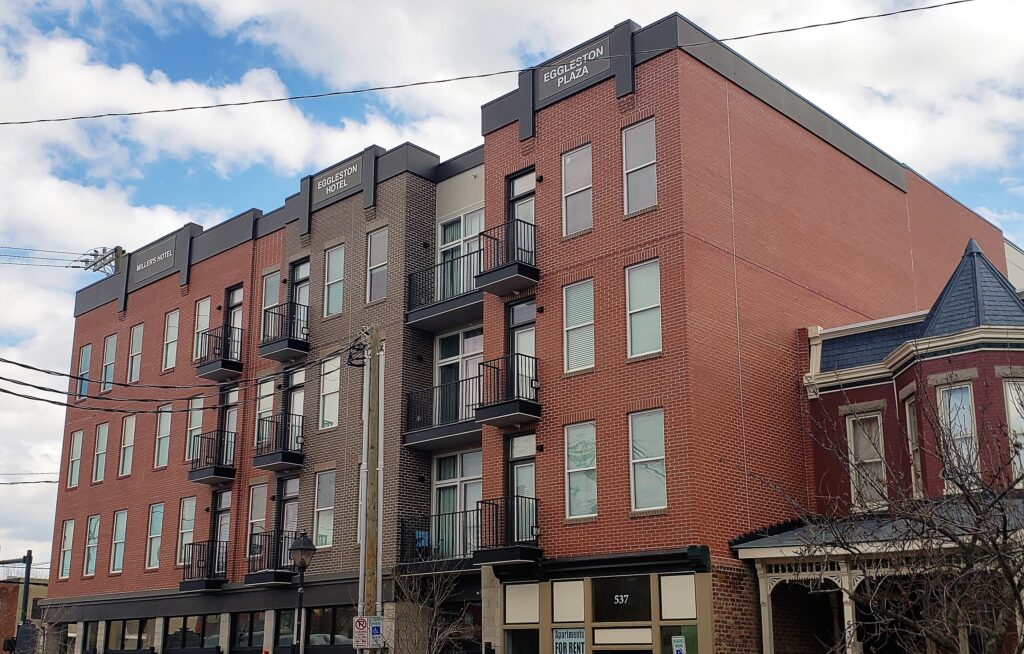Editor’s Note:
This post draws heavily on HousingForward Virginia’s HB854 Statewide Housing Study from 2022. click here to see the full report.
The FWD #B12 • 922 Words
Bond financing is an important part of funding affordable housing in Virginia.
But it is also one of the least understood. In this edition of Back to Basics, we’ll continue our explanation from our previous blog post to explain how bonds are used at the local government level.
Just to refresh your memory, a bond is basically a loan. The issuer offers the bond to investors (the “lenders”) who are promised a fixed rate of interest for a fixed period of time. The issuer then uses these funds for a specific purpose and repays the investors interest and principal afterward.
Private activity bonds
The primary use of housing bonds at the local government level has been the issuance of private activity bonds (PABs) by public housing authorities (PHAs) for affordable multifamily development. These bonds are included in the state bond cap. There are several PHAs in the state that regularly issue such bonds; some issue bonds only within their jurisdiction while others issue them for projects in any locality that invites them. For example, the Harrisonburg Redevelopment and Housing Authority (HRHA) issued $11 million in bonds for a multifamily development in the City of Richmond in 2022. The issuance of these bonds will ultimately bring money back to HRHA.
General obligation bonds
General obligation (GO) bonds are the other type of local bonding that is used for housing. Article VII, section 10 of the Constitution of Virginia provides the necessary authority—and limitations—for cities, counties, and towns to issue general obligation bonds. The Virginia Public Finance Act (Va Code Ann. § 15.2-2600 through 15.2-2663) provides further guidance.
The Constitution of Virginia sets limits on local borrowing powers based on type of locality (i.e., cities, towns, and counties):
- Article VII, section 10(a) of Constitution states that cities and towns may incur debt up to 10% of assessed value of real estate without referendum (some exceptions apply).
- Article VII, section 10(b) of Constitution states that counties must approve most debt by referendum, but does not establish a total debt limit.
GO bonds issued by localities have several advantages compared to other financial tools and resources:
- GO bonds can be structured with greater flexibility than current tax exempt bond offerings. Localities may align bond uses with the greatest housing needs in the community.
- Funds may be applied to a wide range of housing needs—not just affordable multifamily rental. This includes homeownership and homelessness services.
- Localities may offer bond proceeds as grants, deferred loans, and other award mechanisms.
- Flexibility allows GO bonds to fill specific financing gaps created by limited resources from other housing development programs, especially in high-cost markets or underserved communities.
Virginia localities have rarely used GO bonds for housing, though their use for housing is becoming more common in other states.
Some of the cases where Virginia localities issued bonds specifically related to housing include:
- In 1983, the City of Charlottesville issued bonds for housing improvements in the Vinegar Hill neighborhood. Although a lawsuit claimed the city did not have authority to use its bonding capacity for housing activities (which benefitted a private developer involved in the revitalization project), the Virginia Supreme Court ultimately upheld the issuance because the project served a public purpose. (See: Charlottesville v. De Haan, 228 Va. 578, 323 S.E.2d 131 (1984))
- In 2006, the City of Harrisonburg made a loan of $3.5 million in bond proceeds to the Harrisonburg Redevelopment and Housing Authority to renovate public housing units. In 2014, the city issued refunding bonds and entered into a memorandum of understanding with HRHA to facilitate repayment.
- In 2008, the City of Alexandria issued $12 million in bonds for the acquisition, construction, remodeling, and repairing of affordable housing, as well as the acquisition of necessary land and equipment; then issued $1.5 million in bonds in 2012 for public housing replacement used in conjunction with Low-Income Housing Tax Credits. The city issued another $4.4 million in 2017 to fund the redevelopment of one homeless shelter and the construction of another.
GO bond issuances in Virginia have instead largely funded investments in public education, transportation, and infrastructure. This tool is more often used in neighboring states. In the past several years, the cities of Charlotte and Raleigh in North Carolina have launched local affordable housing initiatives where GO bonds played a significant role.
In 2022, voters (74% of voters) in Charlotte, NC overwhelmingly approved $50 million in GO bonds for affordable housing, which would go to the city’s affordable housing trust fund in a. This was the third time (previously in 2018 and 2020) that Charlotte voters passed a $50 million bond referendum to support affordable housing as the housing market has reached a fever pitch. While the housing market pressures played a role in support for the referendum, a public campaign was pivotal in educating residents. Since 2018, Charlotte has created 12,000 affordable units and shelter beds through the housing trust fund, due in large part to bond financing.
One final note
Legislation was approved in the 2023 General Assembly that could have a big impact on local government use of this financing tool. HB1805 and SB1401 aim to make it possible for the Virginia Resources Authority to issue such bonds on behalf of local governments. This approach simplifies and streamlines a process that has discouraged local use of GO bonds for housing. The legislation is on the Governor’s desk for signature. Stay tuned for more information about this new form of financing for housing. It could be a game changer.
